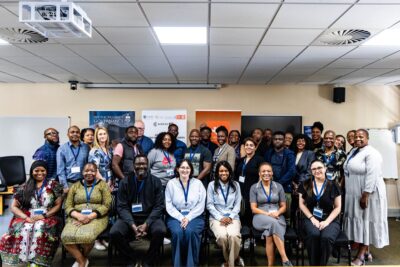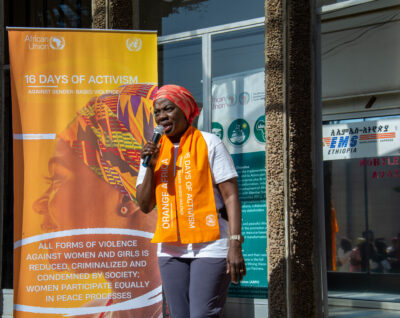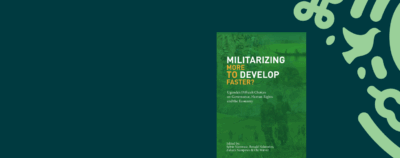There is no religion without the body; there is no religion that is not embodied.
I.
A few years ago, I found myself in San’a, trying to attend Jumu’a prayer at Jami’a al-Kabir. I’d been there before, for an off-peak prayer, and prayed in a corner somewhere that didn’t appear to be designated as “the women’s section.” But on this Friday, the men at the door turned me away, saying that today the masjid was reserved for men only, there was no space at all for me to pray. I had bathed and purified myself, worn fresh and clean clothes, perfumed myself before arriving. I was wearing a jilbab and hijab, but this believer was turned away from this masjid, on this Friday, because of her female body. The men had taken up all the space; there was no room for women.
I was feeling a lot of things on the walk back to my apartment—rejection, humiliation, sadness, anger, confusion. Why was I considered a second class believer? Why was my prayer so easily sacrificed for the prayer of men? I was in this general deflated funk when a young boy pulled up next to me and my partner on a bike. My partner had decided to forgo his prayer at the masjid out of solidarity. Where are you going? asked the boy. Well, we were going to pray jumu’a but there is no room for women to pray! I wanted this little boy to feel all the shame of a patriarchy that would deny me space to pray. I wanted his little shoulders to feel the weight of it all. I wanted to punish someone for the cruelties of patriarchy. He shifted his weight, moved from a seated position to standing on his pedals, brought himself up to eye-level and said coolly, The Prophet said, the prayer of the woman in the home is better than her prayer in the masjid, and her prayer in the closet is better than her prayer in her room. He recited the lines at me, putting me in my place, transferring all that weight right back to me.
Indoctrination begins young and it gets us all.
II.
Last year, I went to the Turkish masjid outside Sydney for Jumu’a prayer. I went with two brown men—my partner and our host in Sydney, a young graduate student. It was a hot, hot day. You sweated just standing without even moving. Our limbs moved slowly, as if through water. As we arrived at the street of the mosque, it rose before us, like a mirage through the wavy heat lines, impressive and beautiful. And out of place, given the squat suburban houses surrounding it. Still, it looked grand, with a dome and minaret and all. We were talking as we entered through the gate and into a verandah. Some light skinned, rosy cheeked Turkish men, their faces deeply lined, were lounging around, rosaries in hand, chatting.
The entrance to the masjid was on the right, and I figured the women’s entrance would be somewhere near there, so I set off in that direction. But suddenly, I was acutely aware that I’d walked through an invisible barrier. My feet stopped before several of the men jumped up—rather spryly for their age—speaking at once, telling me to stop, telling me the women would be praying in a separate building off to the left, away from the men, away from the dome and the minaret.
I followed their directions and went through double doors and immediately encountered a wall of mobile barriers designed to thwart the prying eyes of men. I had to walk around the barriers to see that, because I was a woman, I’d be praying in a vast windowless room, with fluorescent lights and, mercifully for this day, air conditioning. The floor was uncarpeted, and the rows of cloth sheets did little to protect our bodies from the hard floor. As if to counter the ugliness of this sparse multipurpose room used otherwise for community events, the women hurried in, often with children in tow, wearing beautiful, sparkly outfits, flowers and leaves and stems rising from their hems or their wrists, turning them into moving gardens.
After salat, I was set to leave, but our host negotiated permission from the imam for us to tour the actual masjid. He was surprised and upset that I, a Muslim scholar of Islam, might not even be able to see it, having come all this way. The imam relented, but only after demanding our credentials, ensuring that his concession was for someone from a particular professional class. But, wait for a while, he instructed, once all the men leave, then we can take her into the masjid. So, we waited for the men to leave, lest I pollute them or their prayers with my presence. As I stepped onto the plush carpet of the masjid, the imam called out, Wait! Put these socks on! The socks were meant to protect the carpet from my feet, which were presumed to be dirty. Our host bristled at this, too, pointing out that in his experience this rule was applied more vigilantly to darker skinned believers.
The masjid was beautiful. Grand, colorful, spacious, airy, light-filled. The walls were covered in hand painted art; Qur’anic calligraphy that looked lyrical, and flowers and stems and leaves with gold outlines. A garden. Which is the word for paradise in Arabic: jannah. A paradisaical garden. And like a garden, it felt like respite, a sanctuary, an oasis. Damn! It must have been nice to pray in here, I said. The imam looked a bit sheepish. He knew where I’d had to pray. But there’s no AC in here, he offered, trying to make me feel like I was the special one. But you don’t need an AC here, I did not say.
As we left the masjid, on a whim, I asked my host and my partner, Wanna see where I prayed? I took them to the adjacent building, into the main room, which was now empty and dark, as the lights were turned off, the barriers removed, along with the rows of cloth. We stood looking into this vast, empty, unadorned, windowless room. I was unprepared for how sad, even hurt, this room made these men. Oh, said one of them in a voice that felt like a heavy stone sinking into murky water. It’s like a desert, said the other. Yes. A deserted desert, compared to the garden that was the masjid. Except, even the desert has light.
III.
This past August, I joined my partner for Eid celebrations in Washington, DC. This was a new experience for me because I usually celebrate Eid with my family in Toronto. We were looking forward to the whole Eid namaz scene, the friends, the khandan—uncles, aunties, cousins, biryani, haleem, endless chai. But two days before Eid, I found myself waking fitfully from troubled sleep, consumed with terror at the prospect of some guy—some white guy, some white, likely Christian guy—shooting up the masjid. I mean, we were all going to be congregated there, dressed up in fancy and therefore un-sensible clothes; we’d be sitting ducks. Each time I descended into deep sleep, I would wake in a panic.
It was a new feeling for me, this fear of going to Eid namaz. And I wasn’t worried about being killed myself because, likely, I wouldn’t be praying in the main prayer hall. I’d be off to the side somewhere, shuttled out of view, in a basement or a balcony or a side room, or an adjacent building. Rather, I was worried about this potential white terrorist murdering my partner. We’d likely hear the shooting in the women’s section over the speakers, or see it on the closed circuit TV, if they had one installed for the women to see the men. How would I get to him, I worried. Would I even be allowed into the men’s section to find him?
We’ve heard that racism hurts everyone, even white people. The same is true for patriarchy—it hurts men alongside women and non-binary people. And here it was, the truth of this as clear as day: If a racist, white, misogynistic terrorist decided to shoot up a masjid in DC, he’d likely walk up to the main entrance of the masjid and start shooting, without knowing, or caring, that this was the men’s section.
Patriarchy hurts men. It kills them.
IV.
Religion is only ever embodied. Which is to say, religion is always about the body.














This happens everywhere, all the time with my partner as well.
I keep being reminded of the same quote that the little boy re. women being encouraged to pray in private. What us your opinion on that? Is that out of context? How can Muslim women respond to that quote?